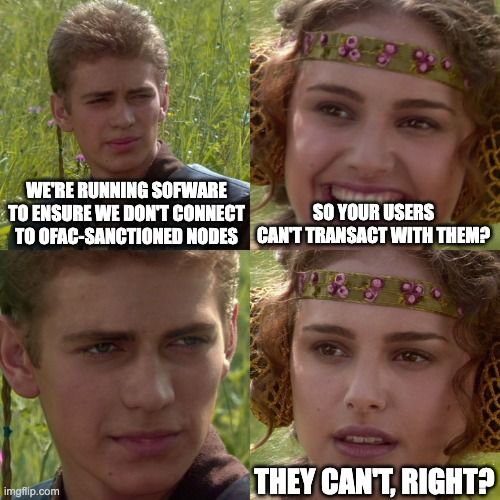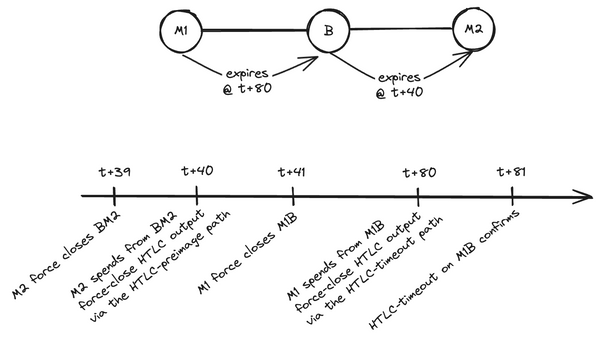Latest Strikes 50 - August 14th-20th 2023

Wassup Lightningers! Last week got us some grants, a new LSP and a very interesting proposal! Ready to learn more? Let's dive in!
Ecosystem
Grants
Last week awarded us with another wave of OpenSats grants, of which 3 are going to Lightning-related projects: LNBits, Watchdescriptor and Fedimint. The goal of the Fedimint grant is more precisely to "improve the Fedimint UI and develop free and open resources for developers and 'Guardians' [(Fedimint custodians)] to enable more people to run and develop on Fedimint".
Watchdescriptor is a Core Lightning plugin that tracks funds from several wallets registered on the node and sends the data to another plugin called bookkeeper. This enables node operators (and especially companies) to easily perform proper accounting, tracking every inflows and outflows, and outlines the power of Miniscript in efficiently and safely representing wallets to perform extensive accounting and precisely track fund movements.
Lightning Payments In 2025
River published a well-articulated summary of some of the current pain points in Lightning and how current and incoming protocol enhancements can address them. Topics include:
- user experience, enhanced through Lightning Service Providers (LSPs), unified balance and improved liquidity management with splicing, and Lightning-native static payment codes with Bolt12 ;
- privacy, which is currently suboptimal but will be enhanced with PTLCs, path blinding and all kinds of payment proxying, which is already done trustlessly by some LSPs, as well as improved on-chain obfuscation with Taproot.
Definitely worth a read, especially if some of the concepts listed in the above two sentences seem a bit unclear. Lightning is moving, and it's moving fast!
A New LSP Is Coming In
A new LSP announced itself last week. FlashSats provides inbound liquidity for a 2% rate and a nominal fee. It is mostly in line with the ongoing LSP standard and supports unannounced channels.
Zaps On iOS?
Current, a Nostr app for iOS, found a way to circumvent Apple's restrictions on zaps by adding in-app purchases and a subscription into the mix. Both paid features go through Apple's own payment system, where the Palo Alto firm is able to take its 30% cut. The zapping feature hence made a comeback, and everyone can use it without having to use Apple's payment system, by loading the wallet in the Current app with sats.
However, since the $0.99 in-app purchase loads the embedded Lightning wallet with 2100 sats there are concerns that this may not last long. However it seems that implementing an optional subscription through Apple's system is enough to satisfy the beast, and Lightning zaps can stay in the app as before, available to all users.
Wallets & Tools
Phoenix Deployment Update
The beta for the new version of Phoenix (which brings splicing and a revamped fee model) went smoothly, so the Acinq team released the update in the wild!
SimLN
There's a new tool for developers! SimLN helps you simulate realistic payment activity, which can be very helpful to test protocol changes, perform load-testing on an application or a website, or more generally any Lightning-related research project. The tool requires you to "come with your own network", which can for example be a signet or a regtest Lightning Network (i.e. a test network that runs locally on your computer). Other tools (such as Polar) already handle the network creation step, so SimLN is a very nice addition to the current, existing toolset.
Spec & Implems
Core Lightning RC3
The third release candidate for Core Lightning v23.08 update has been tagged. It brings significant fixes, notably to the renepay plugin (which implements the Pickhardt payments algorithm), splicing, experimental anchors, zero-conf channels and LND's incoming fee. As Rusty Russel highlights, splicing and renepay might not be perfect when the new version is shipped, but them being experimental features at the moment allows for some flexibility.
Backing Up Channel State With Counterparties
There was an interesting discussion on the Lightning-Dev mailing list last week, revolving around backing-up channels with one's channel peer, which can then be used to resume a channel after an interruption. The rough, initial idea put forth by Thomas Voegtlin (developer of Electrum) is that Alice can send their channel backup to Bob (typically their LSP), and periodically check that Bob indeed returns the latest state when asked for it. Should Bob try to cheat (or genuinely provide a revoked state) Alice will be able to publish the fraud proof and use it to sweep the channel funds using an additional spending path on the funding transaction output (i.e. the UTXO representing the channel on-chain).
However, for the fraud proof to actually trigger a justice-like transaction requires two new opcodes (namely OP_CAT and OP_CHECKSIGFROMSTACK), and hence a soft fork. Moreover, as some argued, this fraud proof system might me superfluous, since Alice could just force-close the channel as soon as she detects a cheating attempt from Bob. The loss of future routing earnings and reputation incurred by Bob would be enough incentive to keep him in line. The only case where such a powerful mechanism would be useful would be to prevent sudden rug-pull from a LSP, where the LSP's plan is to get as much funds as possible and run away.
If you wish to explore this proposal in more depth, check out the discussion and Bitcoin Optech's coverage.
Closing Bit
Adieu ma Dame
Ton regard me suit
Comme je m'éloigne.
Je m'en vais vers un nouveau port
Ton égide aimante dans mon dos
Gonfle mes voiles et ma poitrine.





